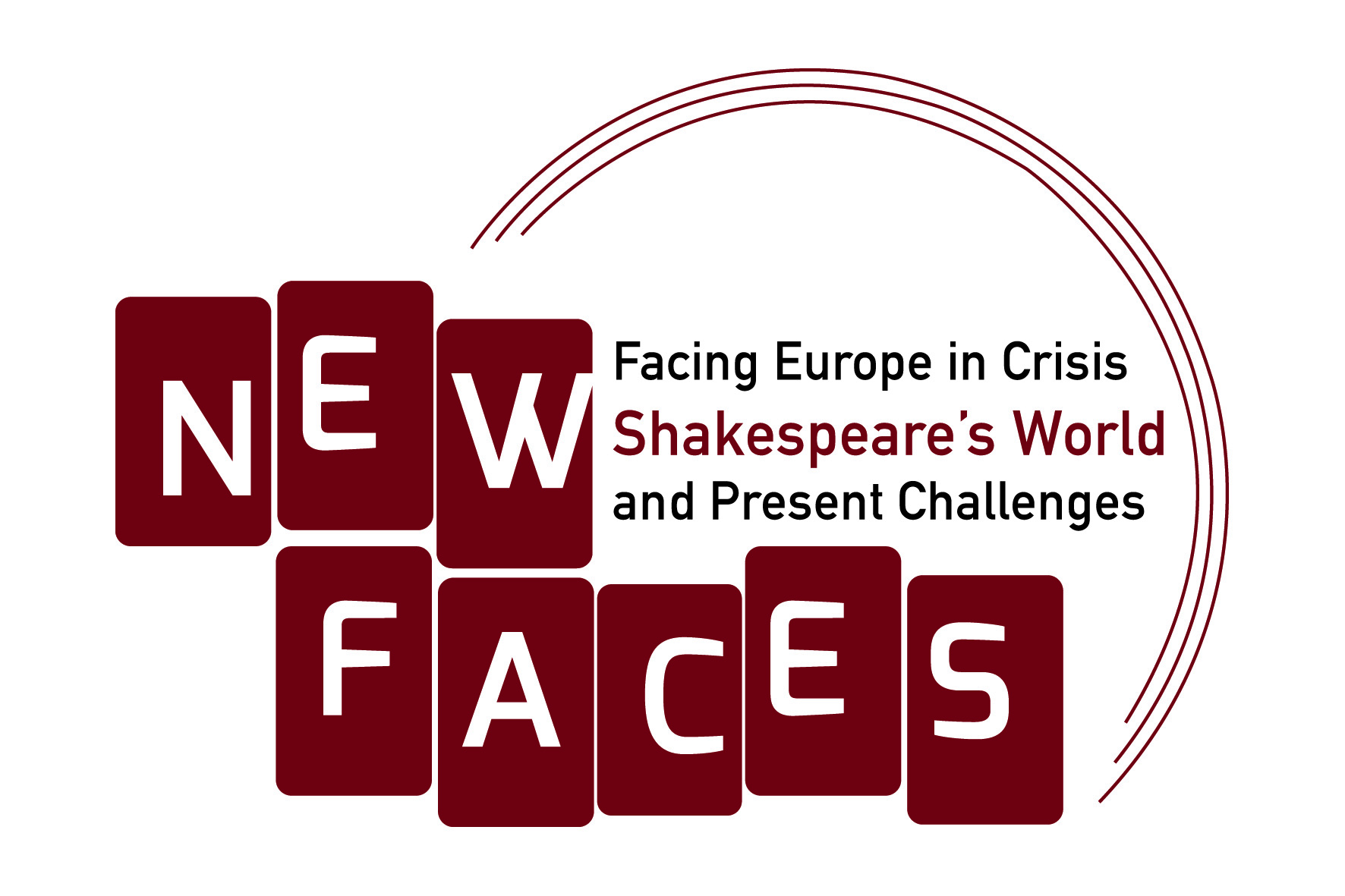NEW FACES, "Facing Europe in Crisis: Shakespeare’s World and Present Challenges" (2016-2019)
New Faces is a European Strategic Partnership that aims to promote historical understanding of the complexities of crises (cultural, linguistic, political, social, religious, economic)
NEW FACES: Studying Shakespeare's World to help face and manage the present and the future
NEW FACES (Facing Europe in Crisis: Shakespeare’s World and Present Challenges) is a Strategic Partnership that aims to promote historical understanding of the complexities of crises (cultural, linguistic, political, social, religious, economic), to help face a complex contemporary European context. The multidisciplinary approach will trace similarities of the present developments to, and their differences from, the dynamics of the early modern period (16th-17th centuries). Hence the focus of the NEW FACES Strategic Partnership on the cultural, political and economic functions of early modern theatre and its wider historical and literary context as global values and principal agents of cultural communication in relation to Europe in Crisis. The salient feature of this perspective is the interaction of Shakespeare’s theatre with local and global contexts which has been significantly influencing popular and mass culture.
NEW FACES: A high-level collaborative academic programme
Through a high-level teaching programme that will be validated through ECTS credits by each university, the Strategic Partnership gathers 20 scholars and 180 MA and PHD students (60 per year) from 9 European Universities. The programme means blended mobility as teachers and students from nine universities will be encouraged to work together and to share their research and teaching/learning practices by using both virtual mobility and intensive teaching programmes. The main target group are graduate students in English and cultural studies. A wider target group include political officials, professionals in cultural business, cultural mediators and artists, representatives of secondary education, researchers in economics, socio-political sciences who will conduct workshops and round tables, participate in monitoring the programme and also non-academic institutions with which the project will create interactions. The project, by facilitating collaborative work between universities, students and scholars, will lead to develop transnational partnerships (joint MA, international research programmes...). The use of e-learning and teaching technologies will contribute to promoting high-standard digital humanities, improving academic and research practices on a European and world-wide scale. All the outputs will constitute a sustainable NEW FACES CORPUS.
NEW FACES: A programme designed for future European citizens and decision-makers
The approach to teaching is resolutely project-oriented. Apart from lectures and seminars, the main activities include workshops introducing students to business-related skills, student power-point presentations of the results of individual seminars, student electronic discussion and publication platform (further work with seminar essays). The unique nature of the programme results from the combination of high-level multidisciplinary expertise and the emphasis on employability, management of crisis, subject-specific professional and entrepreneurial skills. The enhanced interaction with non-academic partners who currently have to deal with crises builds bridges between society and the Humanities.
NEW FACES: Towards a European think-tank on the ways one can face crises
The understanding of the crises of the past will be pursued in close interaction with cultural and socio-political actors and complemented with teaching entrepreneurial skills. Round tables on “Culture and /in crisis” will gather a wide range of participants: academics, political officials, cultural mediators and artists, non-academic contributors. Among the issues tackled during the debate, the place and function of culture in times of crisis will be focused on. Culture is too often considered as a variable of adjustment by political and economic decision-makers. Yet, it is tightly interwoven with social issues and economy. NEW FACES will encourage all partners and participants to engage in long-term shared reflections and dialogue on different approaches to the subject.
The conspicuous added value of NEW FACES is to confront past and present, theory and practice through a programme that will lead to the emergence of a multidisciplinary transnational think-tank on Europe in crisis. NEW FACES is a high-quality teaching programme that will increase a much-needed European civic awareness and call for socio-political-cultural initiatives.
More info at: http://www.new-faces-erasmusplus.fr/
Strategic Partnerships for Higher Education
NEW FACES
2016-1-FR01-KA203-023980

